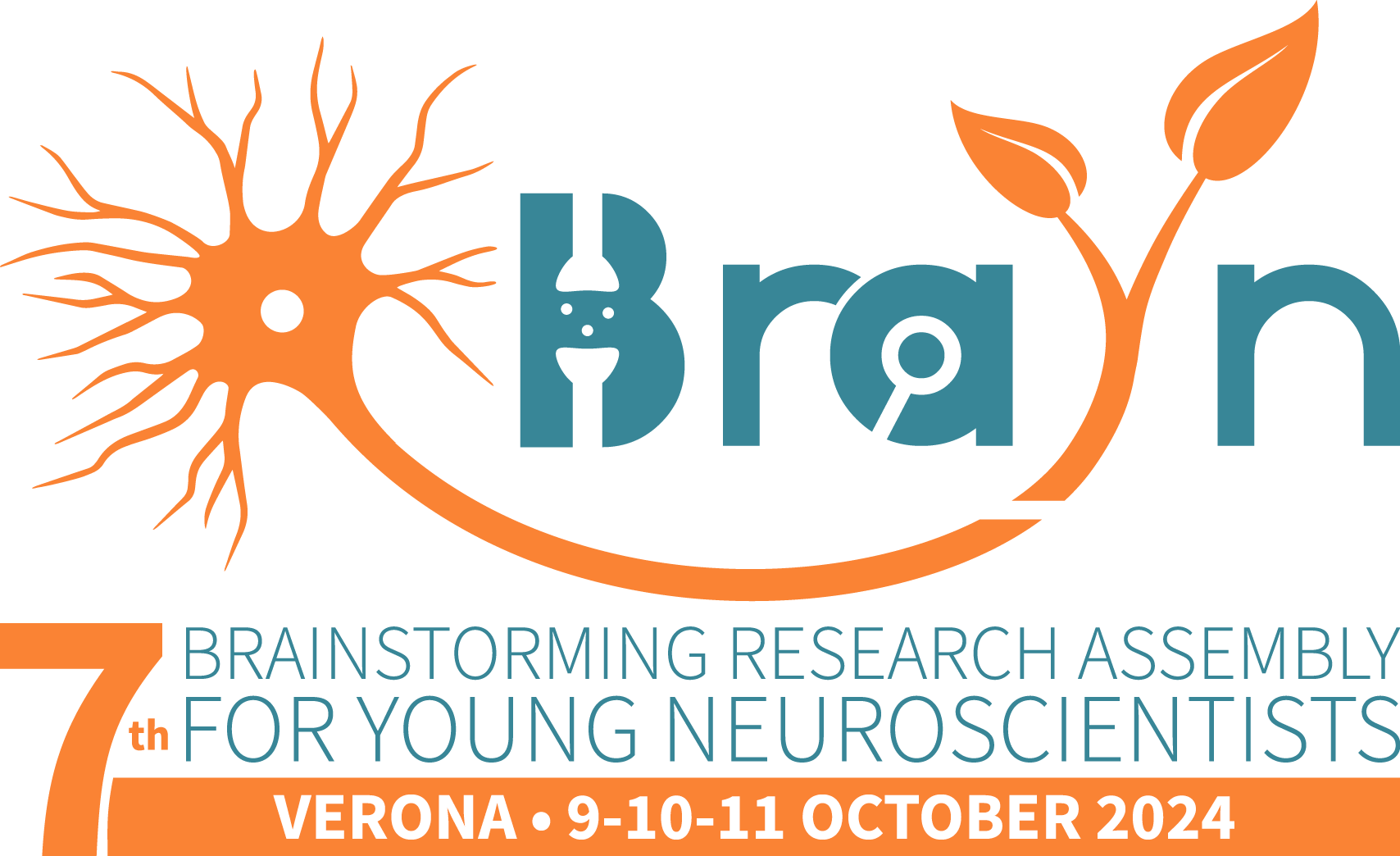The BraYniacs
THE BRAYNIACS
– Abstract selection and poster evaluation –

Filomena Alvino

Filomena Alvino
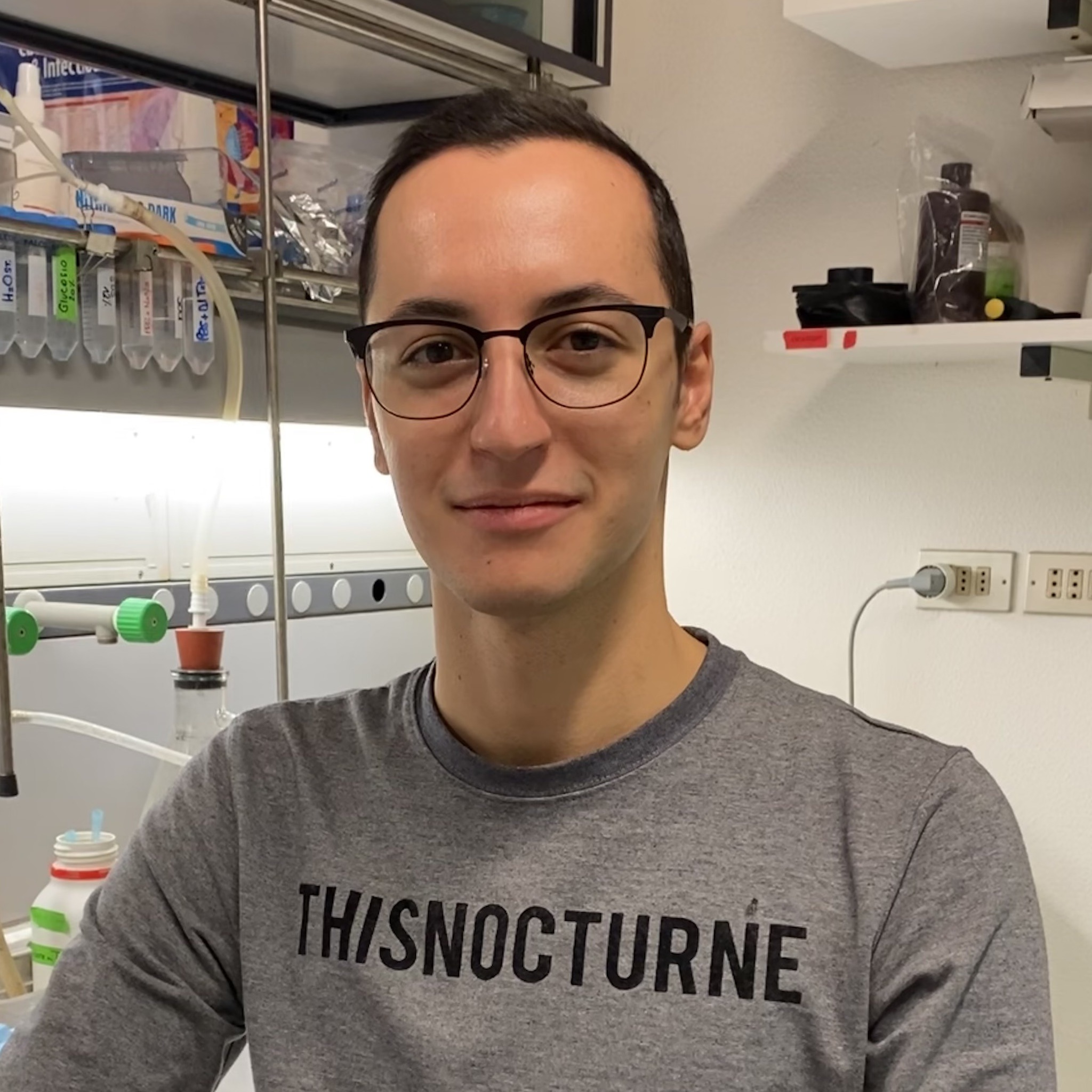
Stefano Amoretti

Stefano Amoretti
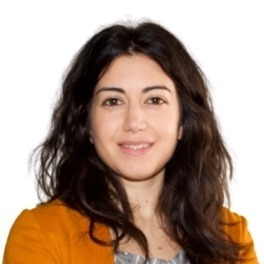
Federica Anastasi

Federica Anastasi
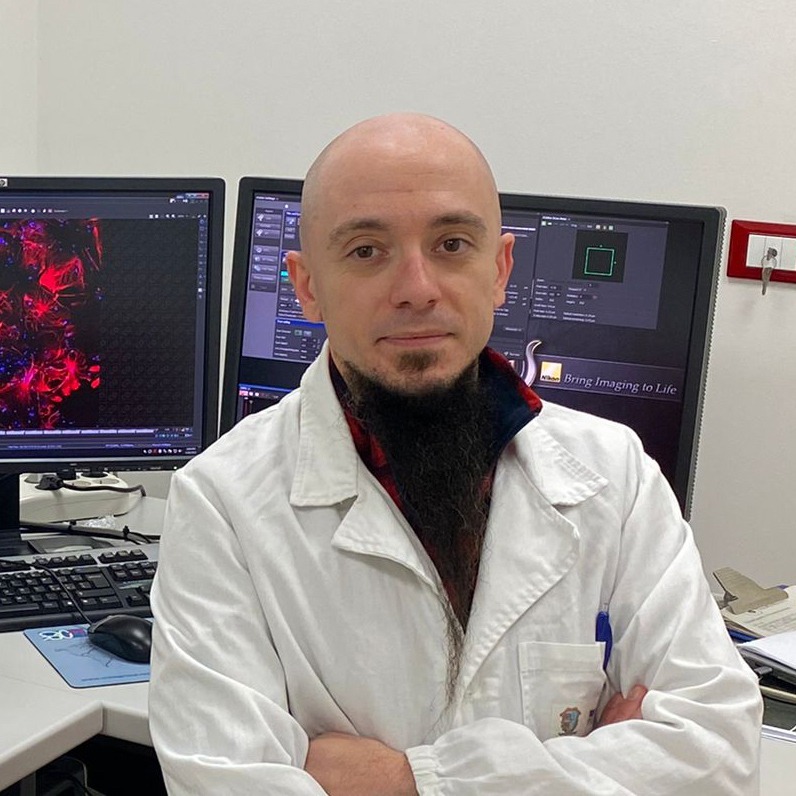
Vito Antonio Baldassarro

Vito Antonio Baldassarro

Ingrid Battistella

Ingrid Battistella

Elisabetta Battocchio

Elisabetta Battocchio
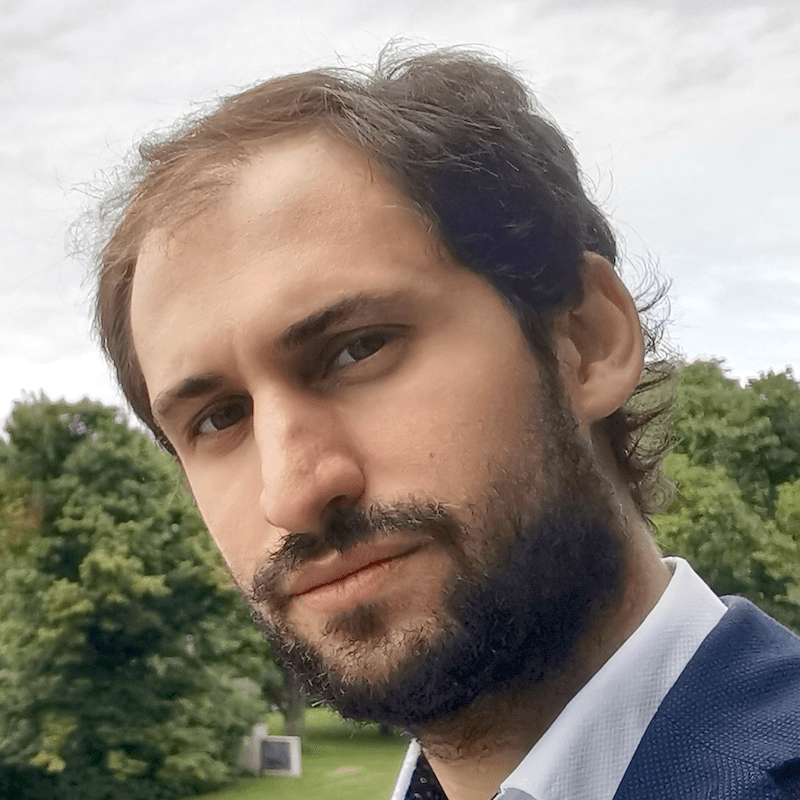
Alessandro Bombaci

Alessandro Bombaci
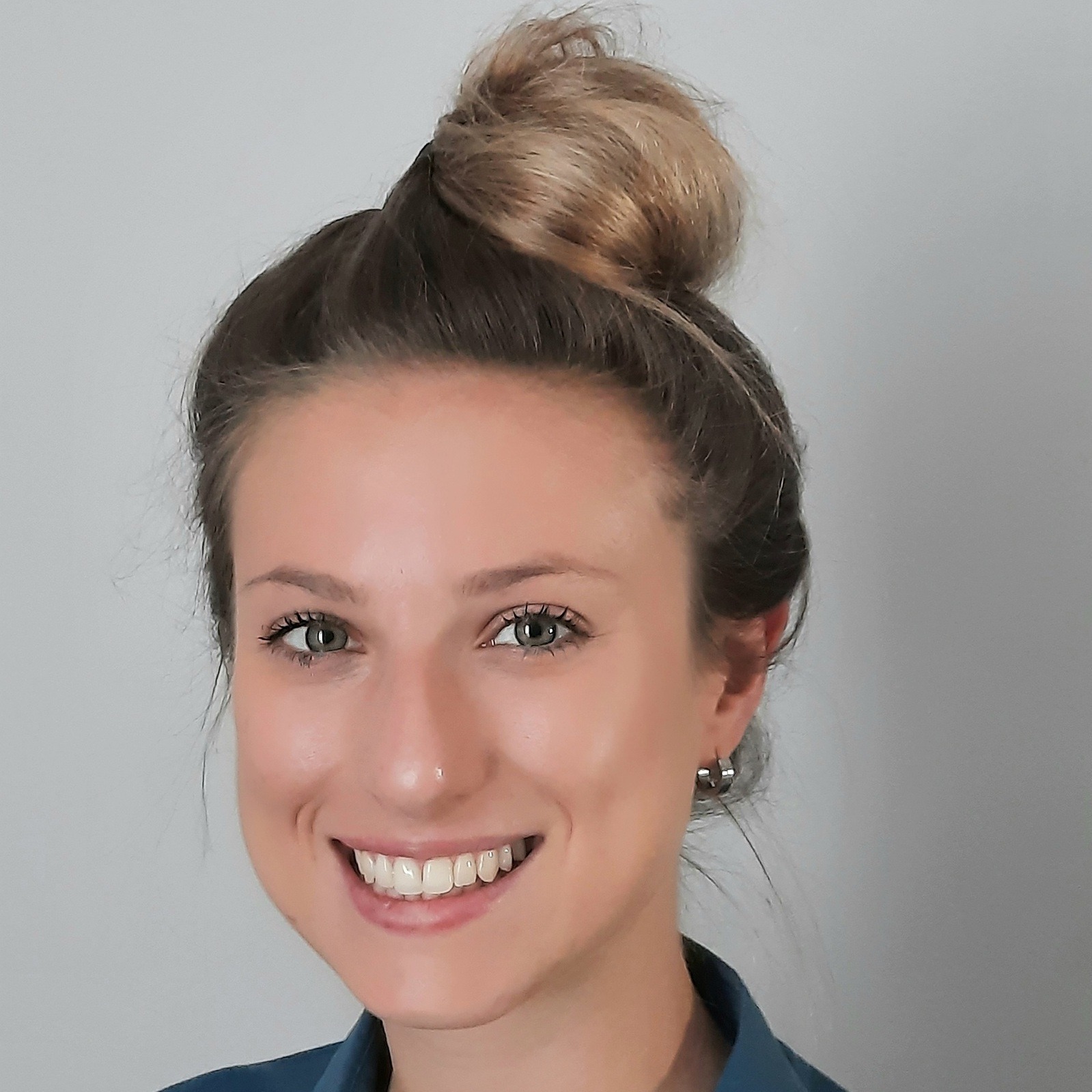
Giulia Borgonovo

Giulia Borgonovo
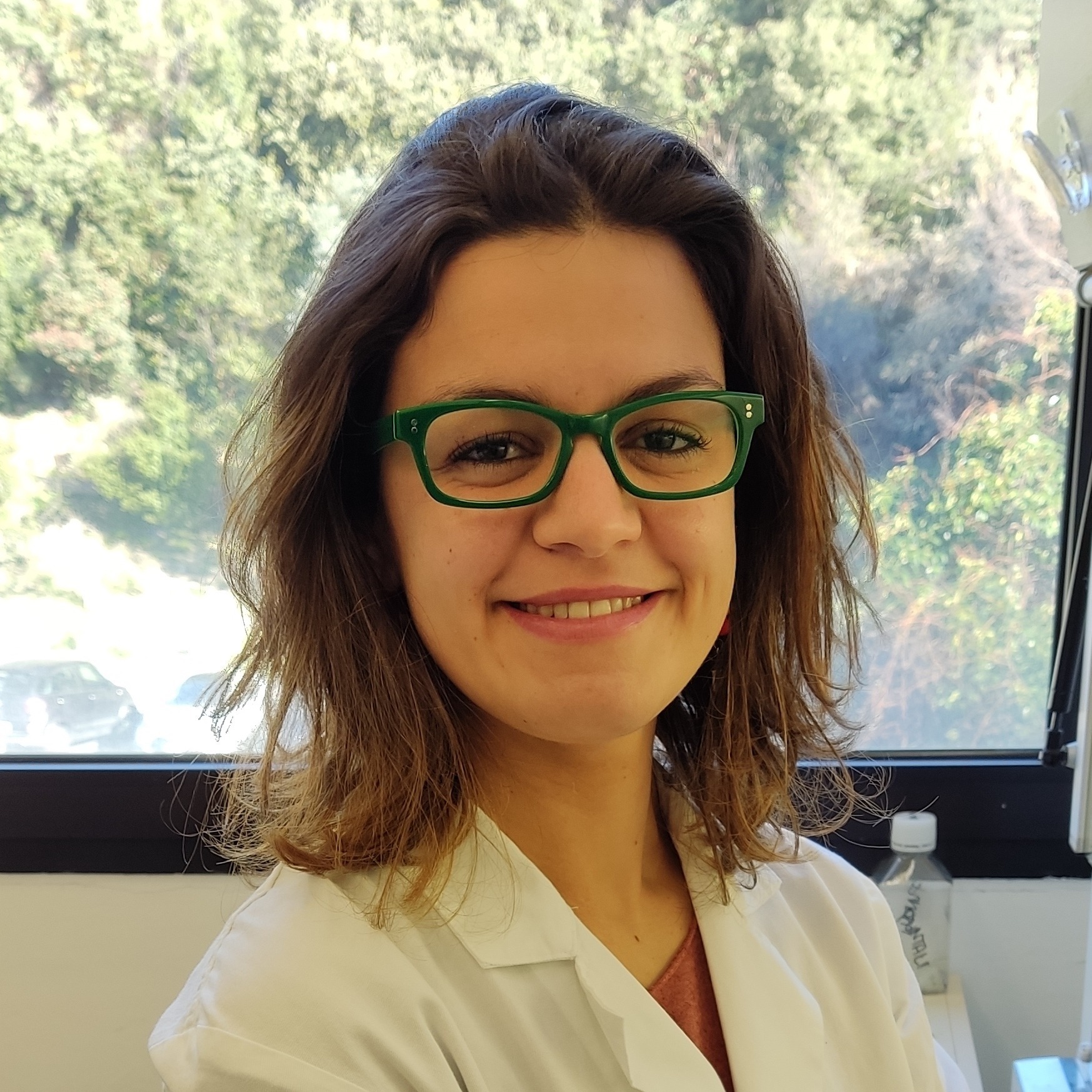
Marta Bottero

Marta Bottero

Giorgia Iegiani

Giorgia Iegiani
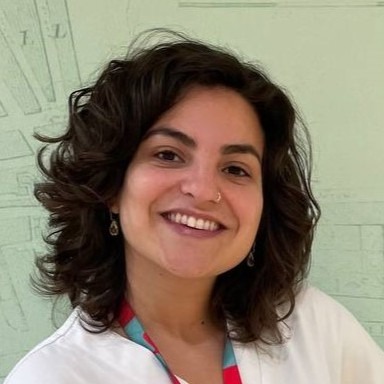
Noemi Marino

Noemi Marino

Elisabetta Mori

Elisabetta Mori
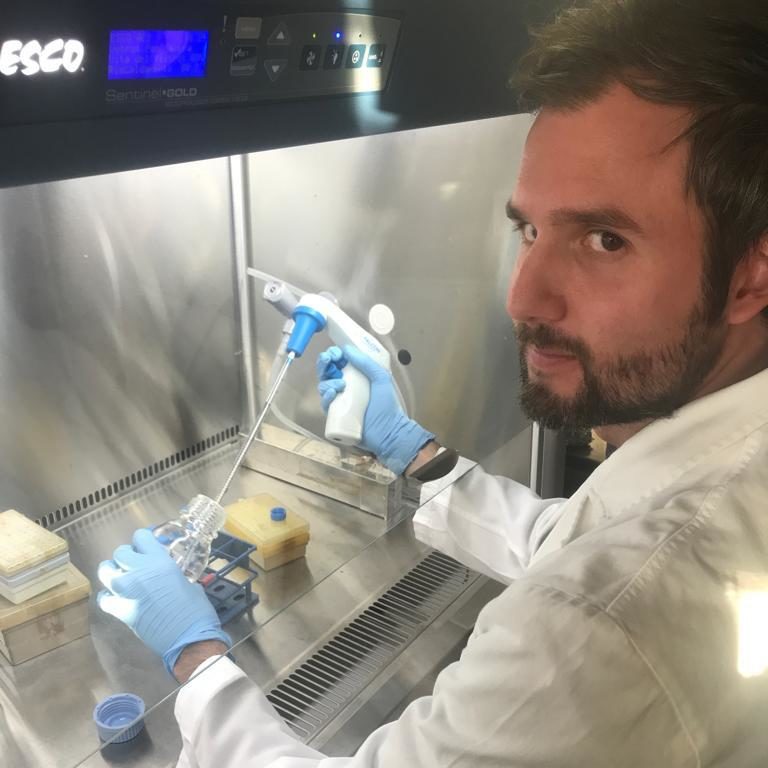
Samuele Negro

Samuele Negro
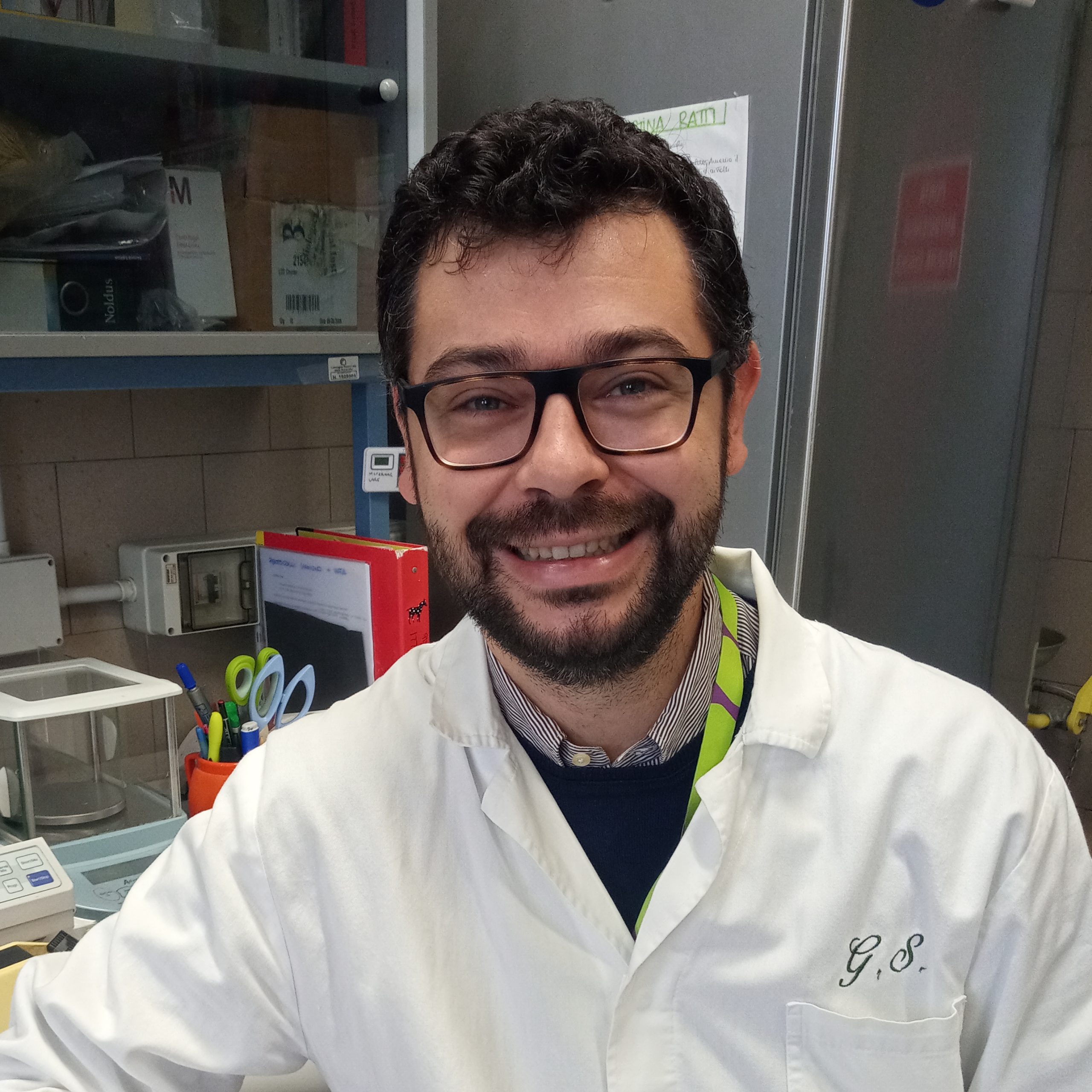
Gabriele Sansevero

Gabriele Sansevero
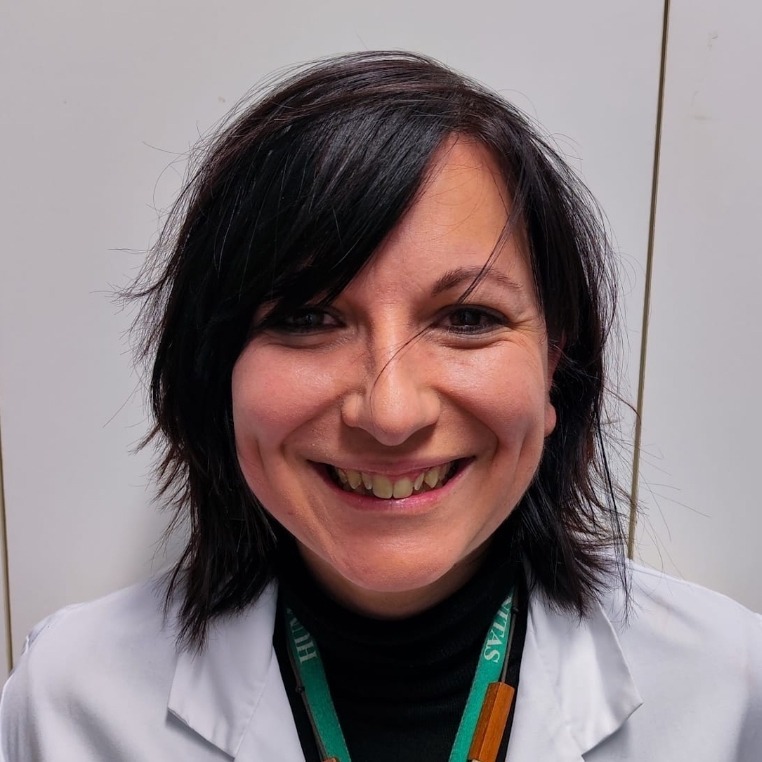
Erica Tagliatti

Erica Tagliatti
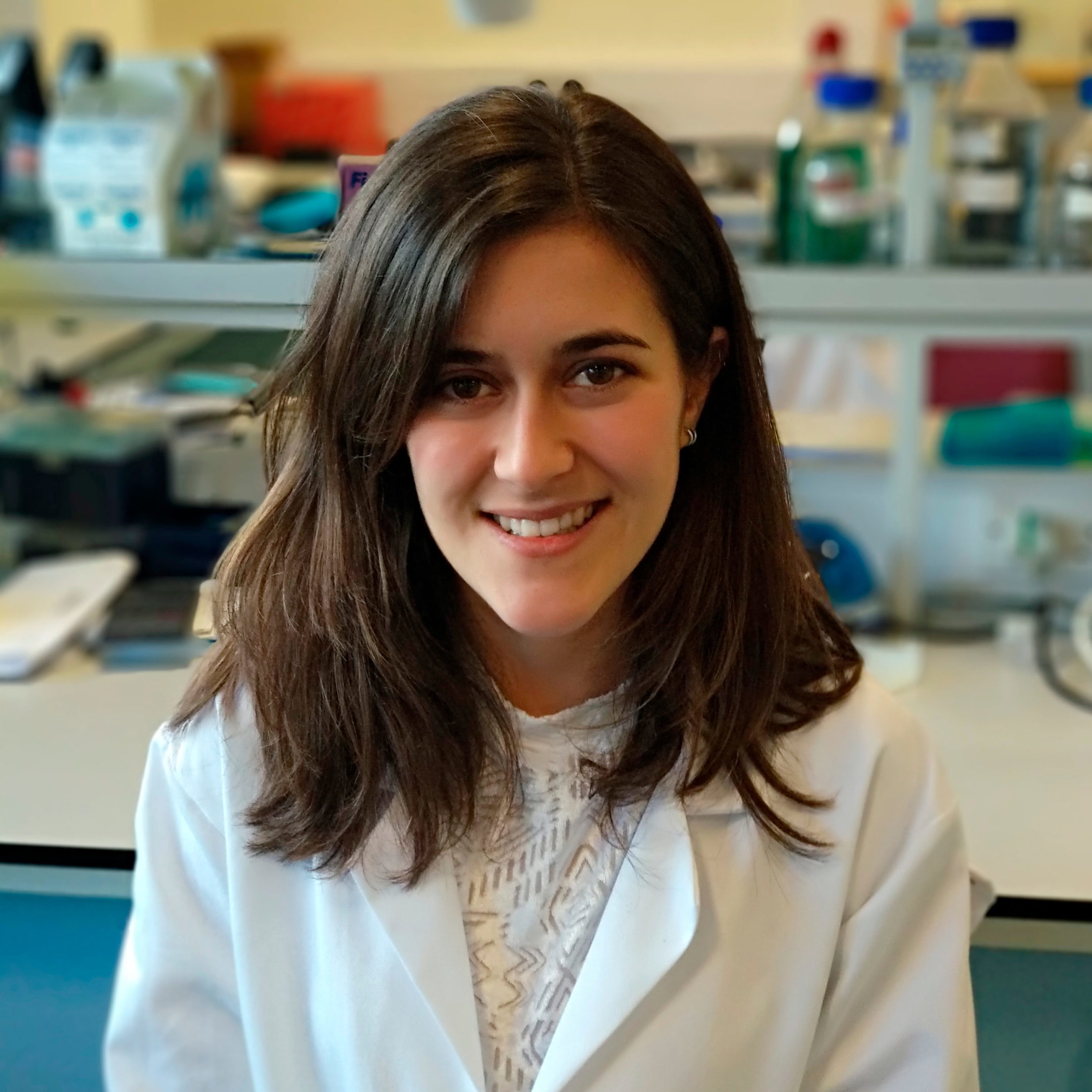
Maria Velasco

Maria Velasco

Filomena Alvino
Istituto Italiano di Tecnologia - IIT, Rovereto (Italy) • Filomena is a biotechnologist with a PhD in Behavioral Neuroscience from Sapienza University of Rome, which she completed in February 2018. The primary focus during her PhD was on examining the neural basis that regulates working memory capacity. Specifically, she delved into the role of the dorsal and ventral hippocampus in working memory capacity, employing two newly developed behavioral tasks within her laboratory at the Institute of Genetics and Biophysics, CNR, Naples. Following the completion of her PhD, Filomena secured a position at the Behavioral Facility of the Telethon Institute of Genetics and Medicine (TIGEM) in Naples. During this period, she extensively worked on characterizing murine models of rare genetic diseases and assessing the efficacy of gene therapy. In February 2019, she transitioned to the Functional Neuroimaging Laboratory at the Istituto Italiano di Tecnologia (IIT) in Rovereto. In her current role, Filomena is actively involved in investigating the developmental trajectory of fMRI connectivity alterations in 22q11.2 deletion syndrome in both humans and mice. This research forms part of a translational study funded by the National Institute of Health and the Stanford Maternal and Child Health Research Institute.

Stefano Amoretti
University of Padua (Italy) • Stefano Amoretti is a first year PhD student in Biomedical Sciences at the University of Padua, currently working in the Neuroparalysis and Neuroregeneration lab of Prof. Rossetto. His current focus is on Botulinum neurotoxin as a tool to study neuromuscular junction remodelling and plasticity. He pursued a bachelor’s degree in biology at University of L’Aquila with a thesis focused on the role of white matter in the pathophysiology of Parkinson’s disease. He then obtained his master’s degree in Neuroscience at the University of Pisa, working on microglia-derived Extracellular Vesicles carrying β-amyloid able to induce hyperexcitability of the cortico-hippocampal network.

Federica Anastasi
BarcelonaBeta, Brain Research Center (BBRC) (Spain) • Dr. Federica Anastasi achieved a Master Degree in Chemistry and Pharmaceutical Technologies in 2016 and after graduating she obtained a four-year full PhD fellowship at the Scuola Normale Superiore di Pisa. During her PhD she developed high-sensitivity mass-spectrometry based proteomics methods for the early discovery of circulating biomarkers of neurodegeneration. Currently, she is a postdoctoral researcher in the group of Fluid Biomarker and Translational Neurology at the BBRC in Barcelona where she is studying the molecular mechanisms that link ageing with neurodegeneration. She is also a visitor researcher in the mass-spectrometry laboratory of the Centre for Genomic Regulation where she uses state-of-the-art proteomics methods to identify novel therapeutic targets for Alzheimer's disease pathology.

Vito Antonio Baldassarro
Department of Veterinary Medical Sciences, University of Bologna (Italy) • Vito Antonio Baldassarro was born in Foggia (Italy) in 1987. He started his scientific study at the high school as industrial chemist, then switching to the biology field with a bachelor’s degree in biotechnology and a master’s degree in animal biotechnology at the University of Bologna, in 2011. In the same year he started to work at the Interdepartmental Center of Industrial Research – Health Science and Technologies – where he remained for almost ten years, focusing his research on Translational Medicine and Neurobiology, with a focus on in vitro models, advanced imaging, and molecular biology. At the same time, he achieved his PhD in Cellular and Molecular Biology at the University of Bologna, building a partnership with the Institute of Genetic and Cellular and Molecular Biology of the University of Strasbourg (FR), where he also obtained a Postdoc contract. From 2021 he is a Junior Researcher (RTDa) at the Department of Veterinary Medical Sciences at the University of Bologna.

Ingrid Battistella
Department of Cellular, Computational and Integrative Biology, Università degli studi di Trento (Italy) • Ingrid obtained her Bachelor's Degree in Biotechnology at the University of Udine. Seeking to augment her expertise, she embarked on a traineeship in the laboratory of Noel Caplice in Cork, Ireland. Then, she pursued a Master's Degree in Cellular and Molecular Biotechnology at the University of Trento in 2021, working in Luciano Conti's laboratory. Ingrid continued her education in the same lab by enrolling in a Ph.D. program in Biomolecular Sciences. Her areas of study are centered toward modeling neurological disorders using cellular systems based on hiPSCs, with an emphasis on identifying the molecular and cellular abnormalities that characterize these conditions.

Elisabetta Battocchio
Neuroscience Institute - National Research Council of Italy, Milan (Italy) • Elisabetta Battocchio is a research fellow at the CNR institute of Neuroscience of Milan. She obtained her Master’s Degree in Pharmacy at the University of Milan in 2019, working during her thesis at the IRCCS Istituto di Ricerche Farmacologiche Mario Negri. Then, she started a one-year research fellowship at the University of Milan Bicocca. In 2020 she enrolled in the Neuroscience PhD program at the University of Milan Bicocca, carrying out her project in the laboratory of Dr Claudia Verderio at the IN-CNR of Milan, and obtaining her PhD in 2023. Her studies revolve around Alzheimer’s disease from her MSc thesis where she investigated the interaction between purified β-amyloid and tau protein thanks to Surface Plasmon Resonance. Then, she moved to in-vitro primary neuronal and microglial cell cultures during her PhD project, focusing on the role of large microglial extracellular vesicles (EVs) in tauopathy and synaptic dysfunction in the context of Alzheimer’s disease. She is currently working in the laboratory of Dr Fabrizia Guarnieri, studying how genetic and environmental factors interacts to increase the risk of developing sporadic AD.

Alessandro Bombaci
"Rita Levi Montalcini" Department of Neuroscience, University of Turin (Italy) • Alessandro Bombaci is a neurologist and PhD candidate at the Department of Neuroscience "Rita Levi Montalcini" of the University of Turin. He graduated in 2015 from the San Luigi Gonzaga faculty (Orbassano) of the University of Turin with a thesis entitled "". He subsequently attended the Specialization School in Neurology. His interest in research began in the first year of medicine, where he undertook a 2-year internship at the Neuroscience laboratory directed by Professor Robecchi and Professor Geuna, and for the following 2 years, an internship at the Neuroscience laboratory of the NICO Center directed by Professor Rossi. Subsequently, from the first year of specialization and throughout the PhD, he served as a member of CRESLA (Regional Expert Center for ALS Care), directed by Professor Chiò, conducting clinical and translational research in the field of motor neuron diseases and frontotemporal dementias. In 2019, he completed a fellowship at the MND Centre of University College London, under the guidance of Professors P. Fratta and A. Malaspina, focusing on projects related to the search for fluid biomarkers in motor neuron diseases and Kennedy's disease. He has participated in more than 20 national and international neurological congresses, both as a moderator of scientific sessions and as a presenter of posters and oral communications. He is a member of the SIN study group on ALS and FTD, RRFS representative on the EAN Scientific Panel "ALS and frontotemporal dementia," national representative on the EAN Scientific Panel on Palliative Care. He has passed the European Examination in Neurology of the EAN. He has participated in more than 10 international clinical trials on motor neuron pathologies. He was a Guest Editor of a Special Issue in Frontiers in Neuroscience (Title: Bridging the Gap between Basic Neurosciences and Clinical Neuroimmunology). He has experience in coordination, acquired over the years both by serving as national coordinator of the young neurologists section of SIN and as a student and neurology resident representative at the department of neuroscience and academic senate of the University of Turin, and as a member of the board of directors of the youth section of the Turin Academy of Medicine. His scientific interests focus on the study of motor neuron diseases and, in particular, translational studies.

Giulia Borgonovo
Scuola Normale Superiore (Italy) • Giulia Borgonovo is a Ph.D. student in Neuroscience at the Scuola Normale Superiore, in Pisa, currently working in Prof. Antonino Cattaneo’s lab. Her project focuses on the relationship between neurotrophins and microglia, the innate immune system of our brain. She obtained her bachelor’s degree in Biotechnology at the University of Genoa, working on platinum nanoparticles’ interactions with cortical neurons, in Prof. Fabio Benfenati’s lab at the Italian Institute of Technology. She then pursued her master’s degree in Neuroscience at the University of Pisa and in parallel a Second Level Master's in Neurobiology at the Scuola Normale Superiore, with a thesis on the effect of an NGF-based treatment on astrocytes in Rett syndrome mouse models.

Marta Bottero
Department of Molecular Medicine, «Sapienza» University of Rome (Italy) • Marta Bottero is a research fellow at the Experimental Neuroscience Lab, IRCCS San Martino Hospital, Italy. She obtained her Bachelor's degree in Biotechnology, and then a Master's in Pharmaceutical Medical Biotechnology at University of Genoa. The main focus of her research is the etiopathogenesis of multiple sclerosis (MS), a chronic and autoimmune disorder affecting the central nervous system. Particularly, she is investigating the role of a membrane-spanning proteoglycan, nerve-glial antigen 2 (NG2) in neuroinflammation and its possible role in the autoimmune response and the role of tolerogenic dendritic cells for a suitable adjunct therapeutic approach in MS.

Giorgia Iegiani
University of Turin (Italy) • Giorgia Iegiani obtained her Master Degree in Molecular Biotechnology and is now enrolled in a PhD programme in Complex Systems for Quantitative Biomedicine at the University of Turin. She is currently working in the laboratory of Prof. Ferdinando Di Cunto on the dissection of the molecular networks in which Citron Kinase operates. She has gained experience in the field of neuro-oncology and neuro-development. The first, by the identification of novel targets for brain tumors medulloblastoma and glioblastoma. The latter thanks to her research stay at the University of Michigan (USA - under the guidance of Prof. Stephanie Bielas) where she learned how to model genetic disease affecting the central nervous system by using brain organoids.

Noemi Marino
Istituto Romagnolo per lo Studio dei Tumori (IRST) and University of Bologna (Italy) • Noemi Marino obtained her master degree in Biomolecular and Medical Biotechnology at the University of Verona, where she performed in vivo studies on the interaction between glioblastoma and glial cells to revert the state of neuroinflammation, indirectly acting on the tumor. Later, she studied neuroinflammation in a mouse model of SMA at the Neuroscience Institute Cavalieri Ottolenghi in Turin, in Prof. Vercelli and Prof. Boido’s group. She is currently a biologist researcher at the Romagna Institute for Tumors Study (IRST) in Meldola (FC), where she is investigating new therapeutic strategies for Glioblastoma treatment, primarily with 3D in vitro models. She is also enrolled in the PhD program on Biomedical and Neuromotor Sciences at the University of Bologna, with a PhD project on cognitive deficits induced by radiation therapy in a PDOX mouse model of glioblastoma.

Elisabetta Mori
Scuola Normale Superiore, Pisa (Italy) • Elisabetta Mori is an enthusiastic PhD Student in Neuroscience at Scuola Normale Superiore (SNS) Pisa. She is currently carrying out her research activity at the CNR Neuroscience Institute, in Pisa, under the scientific responsibility of Dr Eleonora Vannini and Dr Mario Costa. The focus of her research is to understand possible therapeutic approaches for glioblastoma. She started her research journey during her Master’s in Neuroscience, where she graduated with the highest grade in 2020. During her PhD, she spent nine months working at the Immunology Department in Austria, working under the scientific supervision of Dr Stefano Angiari, to gain new skills and knowledge about cancer immunology. Now, she uses preclinical rodent models and cell cultures (human and murine) as experimental tools with the final aim to advance our understanding of therapeutic strategies for glioblastoma.

Samuele Negro
University of Padova (Italy) • Samuele obtained a Master degree in Biologia Sanitaria at the University of Padova in 2012, where he then successfully obtained a PhD in Neurobiology working at the Department of Biomedical Sciences, in the Neurotoxins, Neuroparalysis and Regeneration Lab under the supervision of Prof. Cesare Montecucco. After this, he continued in the same laboratory as postdoctoral Research Fellow and during this period he joined the Prof. Giampietro Schiavo Lab at Sobell Dept of Motor Neuroscience and Movement Disorders, UCL Institute of Neurology in London with an EMBO short-term post-doctoral fellowship in 2018. He is now a recipient of a Starting Grant Ricerca Finalizzata Ministero della Salute, working at the Clinica Neurologica, Azienda Ospedale-Università Padova. In general, his main interests lay in searching for molecular mediators and pathways involved in peripheral nerve regeneration to identify new targets for the development of drugs to sustain and improve this process.

Gabriele Sansevero
Neuroscience Institute – National Research Council of Italy, Pisa (Italy) • Gabriele Sansevero is a fixed-term researcher at the Neuroscience Institute of the CNR (Pisa). He obtained a Bachelor’s Degree in Ecological and Biodiversity Sciences and a Master’s Degree in Applied Biology from the University of Pisa and a PhD in Neuroscience from Florence University. He is interested in studying the impact of lifestyle on different neurodevelopmental disorders by combining electrophysiological recordings and behavioural studies.

Erica Tagliatti
IRCCS Humanitas Research Hospital, Rozzano (Italy) and University College London, London (UK) ● Erica Tagliatti got her MSc in Medical and Pharmaceutical Biotechnology at the University of Genoa (Italy) and, later, her PhD in Neuroscience and Brain Technology at the Italian Institute of Technology (Genoa, Italy) studying the role of Synapsins and small GTPases in regulating neurotransmission. In 2016, Erica moved to the department of Clinical and Experimental Epilepsy at University College London (UK) as a Research Associate to characterize the mechanisms of novel de-novo mutations in synaptic proteins associated with Synaptopathies and to develop novel optical tools to study synaptic function. In 2021, Erica won a HiPPO (High-Profile Post-doctoral Fellowship), held by Fondazione Humanitas per la Ricerca to investigate the crosstalk between neurons and immune microglia cells during early development at IRCCS Humanitas Research Hospital. Meanwhile, she is currently a visiting scientist at University College London, where she is collaborating in characterizing the mechanisms behind Syt1 and 7 co-regulation of neurotransmission. Erica is interested in studying the mechanisms of synaptic disfunctions underlying neurodevelopmental disorders by combining imaging and functional studies.

Maria Velasco
CNIO, Madrid (Spain) • María obtained her BSc in Biochemistry from Universidad Complutense de Madrid (Spain) and her MSc in Biomedical Sciences from the University of Brighton (United Kingdom). Because of her passion for research, she started her PhD studies in the lab of Prof. Dev in Trinity College Dublin (Ireland) in 2015, where she investigated the role of mechanoreceptor Piezo1 in the Central Nervous System during neuroinflammation and in demyelinating disorders. After a postdoct position in Dr. Rutkowska’s lab at the Gdanski Uniwersitet Medyczny in Gdansk (Poland) investigating EBI2 and Piezo1 in Multiple Sclerosis, she joined the H12O-CNIO Hematological Malignancies Clinical Research Unit (Madrid, Spain) in 2021 with a Marie-Sklodowska Curie Fellowship, to investigate Piezo channels in glioma. Her research interest focuses in the biomechanics of the brain and the role of mechanoreceptors in the central nervous system in health and disease.

